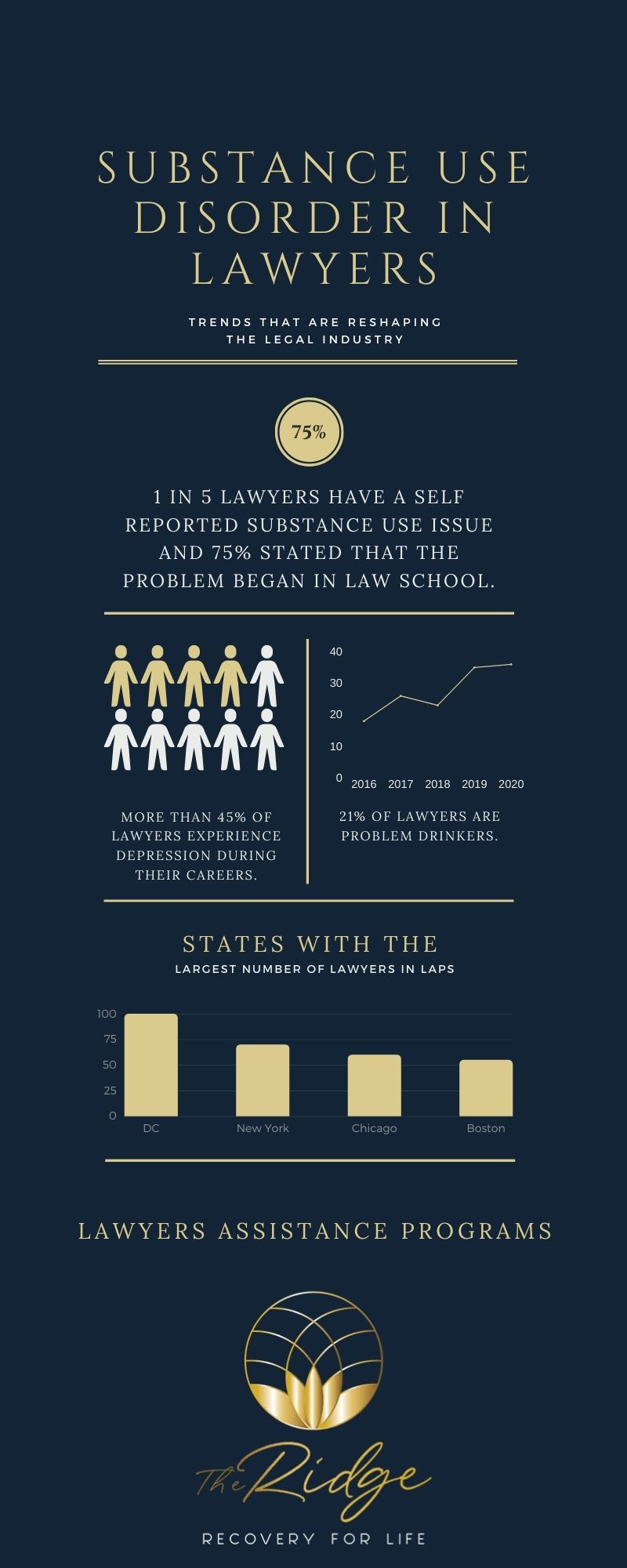As a lawyer, the pressures of work and the legal profession can lead to substance abuse and addiction. However, seeking help for drug and alcohol addiction can be a challenging and overwhelming experience, especially for those in the legal field who may be concerned about privacy and stigma. That’s why it’s important to understand the benefits of drug and alcohol rehab for lawyers and the support that’s available to help you on the path to recovery.
With the right treatment and aftercare, lawyers can overcome their addiction and regain control of their lives, careers, and overall well-being. This article will explore the unique challenges faced by lawyers in seeking drug and alcohol rehab, the benefits of rehab, and the resources available to support long-term recovery.
The unique challenges faced by lawyers in seeking treatment
Lawyers face unique challenges in seeking treatment for addiction, including concerns about privacy, stigma, and the impact on their careers. The Bar Association puts restraints on lawyers and they must abide by the guidelines of LAPs or Lawyers’ assistance programs.

What is addiction?
Addiction is a chronic disease characterized by compulsive drug seeking and use despite harmful consequences. It is a complex condition that affects the brain and behavior and can lead to physical, psychological, and social problems. Addiction is often accompanied by tolerance, withdrawal symptoms, and the persistent use of drugs or other substances despite negative consequences. It can also involve the excessive use of behaviors such as gambling, sex, and eating, which can become problematic and interfere with daily life. Addiction is a treatable disease, and effective treatment involves a combination of medication, therapy, and support from family and friends. Lawyers suffer from addiction at a rate that is higher than other professions.
What Are The Signs and Symptoms Of Addiction?
Signs and symptoms of addiction include tolerance, withdrawal, and continued use despite negative consequences. Individuals struggling with substance use disorder may have the following symptoms:
- Bloodshot eyes or pupils that are larger or smaller than normal
- Alterations in appetite or sleep patterns, leading to sudden weight loss or gain
- The decline in physical appearance and grooming habits
- Unusual odors on breath, body, or clothing
- Shaking, slurred speech, or impaired coordination
- Decreased attendance and performance at work or school
- Unexplained need for money and financial difficulties, including borrowing or theft
- Secretive or suspicious behaviors
- Sudden changes in friends, favorite hangouts, and hobbies
- Increased involvement in trouble, such as fights, accidents, or illegal activities
- Unexpected changes in personality or attitude
- Rapid mood swings, irritability, or angry outbursts
- Periods of excessive hyperactivity, agitation, or giddiness
- Loss of motivation and appearing sluggish or “spaced out”
- Unexplained fear, anxiety, or paranoia.
What Is The impact of addiction on the legal profession?
Addiction can have a profound impact on a lawyer’s career, including professional reputation, work performance, and overall well-being. It is clear that drug use disorders can have a devastating effect on a lawyer’s career and personal life. Lawyers impacted by drug use disorder may also create problems for their families, employer and professionals.
Alcohol Addiction Statistics
- A study by the ABA Commission on Lawyer Assistance Programs and the Hazelden Betty Ford Foundation revealed that close to 21% of lawyers and individuals in the legal field struggle with problem drinking.
- The study showed that even more lawyers, over 36%, have issues with alcohol abuse.
- The findings indicate that nearly half of the lawyers surveyed reported that their drinking problems started in their early years in the legal industry, including their time in law school.
Prescription and Illicit Drug Statistics:
- The easy access and legality of prescription drugs have led to an increase in prescription drug abuse among lawyers. 9% of lawyers have been found to struggle with prescription drug abuse, often using these drugs to stay awake or relieve stress. Mixing alcohol with prescriptions can lead to dependence and overdose.
- The statistics on illicit drug use among lawyers are less reliable due to the illegal nature of these substances and the reluctance to admit use. However, a significant number of legal professionals resort to drugs such as cocaine and heroin to cope with depression and job stress.
Depression Statistics:
- Approximately 16 million American adults, or 6.7% of the U.S. population, struggle with depression. Half of those diagnosed with depression also face substance abuse issues.
- The statistics regarding depression in the legal field are even more concerning, with over 45% of lawyers experiencing depression during their careers. Of these individuals, 12% reported having suicidal thoughts at least once. Substance abuse among lawyers is often linked to depression and related thoughts and feelings.
Treatment for Substance Abuse in Lawyers
Recovery is a journey and requires ongoing support and effort. Resources for executives like doctors or lawyers are available in the form of rehab, support groups, therapy, and sober networks can help support long-term recovery. The Ridge Ohio has a professional program that is credentialed with the Lawyers Assistance Program of Ohio and frequently treats attorneys. If you are an attorney struggling with addiction or know a colleague struggling with addiction, we can help.
Call now to learn more about our executive program for attorney’s!
(513) 457-7963References
- American Bar Association. Lawyer Assistance Programs By State. Retrieved May 28, 2023, from https://www.americanbar.org/groups/lawyer_assistance/resources/lap_programs_by_state/
- Anxiety and Depression Association of America. About ADAA Facts & Statistics. Retrieved May 28, 2023, from https://adaa.org/
- Indiana Judicial Branch. About JLAP. Retrieved May 28, 2023, from https://www.in.gov/judiciary/
- Krill, P. R., Johnson, R., & Albert, L. (2016). The Prevalence of Substance Use and Other Mental Health Concerns Among American Attorneys. Retrieved May 28, 2023, from the specified source.
- Addictions.com Medical Review. Silent Suffering In The Courtroom: Lawyers Substance Abuse. Retrieved May 28, 2023, from https://www.addictions.com/

